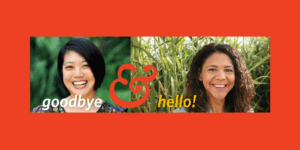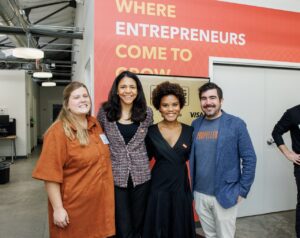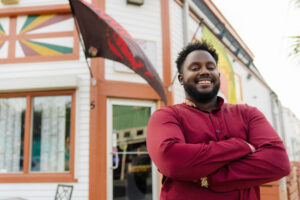learn the latest.
News + Press

Welcoming Jessica Allen, Propeller CEO
May 1, 2025 Thank you so very much for your partnership and support of Propeller since our founding. Because you have been a part of Propeller’s journey and evolution to

Regions: Faces of the Financial Wellness Collaborative
The Financial Wellness Collaborative – a partnership between Propeller, Thrive NOLA and Fund 17 – helps small-business owners in New Orleans bolster their overall financial health through a series of workshops and more.

Candid: Bridging gaps and weaving networks: The vital work of place-based intermediaries
Drawing on the co-leadership of CORE (Community Organizations Reimagining Ecosystems), a national cohort of eight place-based intermediaries—Co.act, Community Wealth Partners, Mission Capital, Propeller, Radical Partners, Rooted in Vibrant Communities, Social Innovation Forum, and Social Justice Partners Los Angeles—as well as research from ideas42, this article explores how PBIs leverage their local knowledge and provide tailored support to cultivate sustainable, impactful change.

New Orleans Advocate: After losing her baby, New Orleans woman turns grief into organization that helps NICU families
Saul’s Light Founder and Executive Director and Startup Accelerator 2018 alumna Kimberly Novod is profiled in the New Orleans Advocate.

Biz New Orleans: Propeller Hosts “Feeding NOLA’s Future”
NEW ORLEANS (press release) – Propeller, a nonprofit incubator and coworking space dedicated to fostering social entrepreneurship in New Orleans, is hosting “Feeding NOLA’s Future”, an initiative in collaboration with

Visa Perspectives: Game-changing plan to empower New Orleans’ small businesses
Addis NOLA is a New Orleans gathering spot, a family-owned restaurant serving up authentic Ethiopian cuisine. Located on the historic Bayou Road, Addis NOLA is flourishing, and restauranteur Dr. Biruk Alemayehu
where we've been featured




